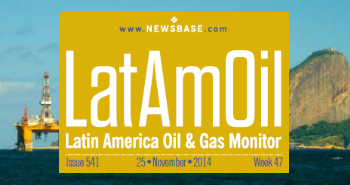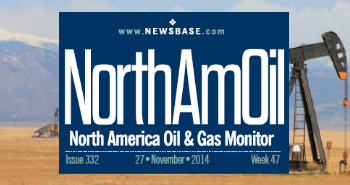No new US tariffs on Canada, Mexico oil or gas

President Donald Trump unveiled his “Liberation Day” tariffs on April 2, and the US, Canadian and Mexican oil and gas industries breathed a sigh of relief.
No new tariffs have been imposed on oil or gas imports from Canada or Mexico to the US, the country’s two largest crude importers.
That is good. Canadian crude buoys US Midwestern refineries. Canada exports some 4mn barrels per day (bpd) of oil to the US. In fact as much as 61% of oil imported into the US in the first 11 months of last year was of Canadian origin.
As for Mexico, the second largest oil importer to the US, in 2022 the US imported more than 637mn barrels of heavy Mexican crude mostly for its Gulf Coast refineries.
The US also exported a record 6.2bn cubic feet (175.6mn cubic metres) per day of gas to its southern neighbour in 2023, an 8% increase from 2022,
Elsewhere in Latin America the tariffs will, however, be felt.
From Colombia, the US imported around $6bn in crude in 2022. In January 2025, the import of oil was 7.8mn barrels, according to the US Energy Information Administration. A 10% tariff is being slapped on Colombian oil – and other – imports, according to the White House.
In 2023, Brazil exported $5.38bn worth of crude to the US, accounting for 13% of Brazil's oil exports. A 10% tariff will be imposed on any new imports, said Trump.
Venezuela – facing strict anctions – has been another significant Latin American oil exporter to the US, but Washington had previously imposed a 25% tariff on any country buying Venezuelan crude, and had cancelled US supermajor Chevron’s licence to do business there. On April 2, Trump implemented an additional 15% tariff on Venezuelan goods.
Brent and WTI had dipped in advance of Trump’s White House announcement of the ‘reciprocal tariffs’, unveiled at 4 pm local time, as the prospect of a widespread global trade war heightened.
In his Rose Garden announcement, Trump imposed a baseline 10% tariff on all US imports starting on April 5, exempting Canada and Mexico, with tariffs on some countries as high as 97% on Cambodia starting on April 9.
The US president left intact a 10% levy on imports of Canadian energy goods that do not fall under the US-Mexico-Canada Agreement (USMCA), the modern-day NAFTA.
USMCA simply requires that products – such as oil or gas – must originate in Canada or Mexico and are not mixed with products of other non-USMCA countries, said Canadian law firm McCarthy Tétrault in an analysis published in March.
The various tariffs are based on the rates that other countries set for US imports, said Trump at his “Make America Wealthy Again” event in Washington.
Canada is expected to respond. Meeting are being held between Mark Carney, the new prime minister, and cabinet members, and with provincial leaders.
"It's essential to act with purpose and with force, and that's what we will do," Carney said to reporters as he walked to a cabinet meeting to discuss the matter.



Follow us online